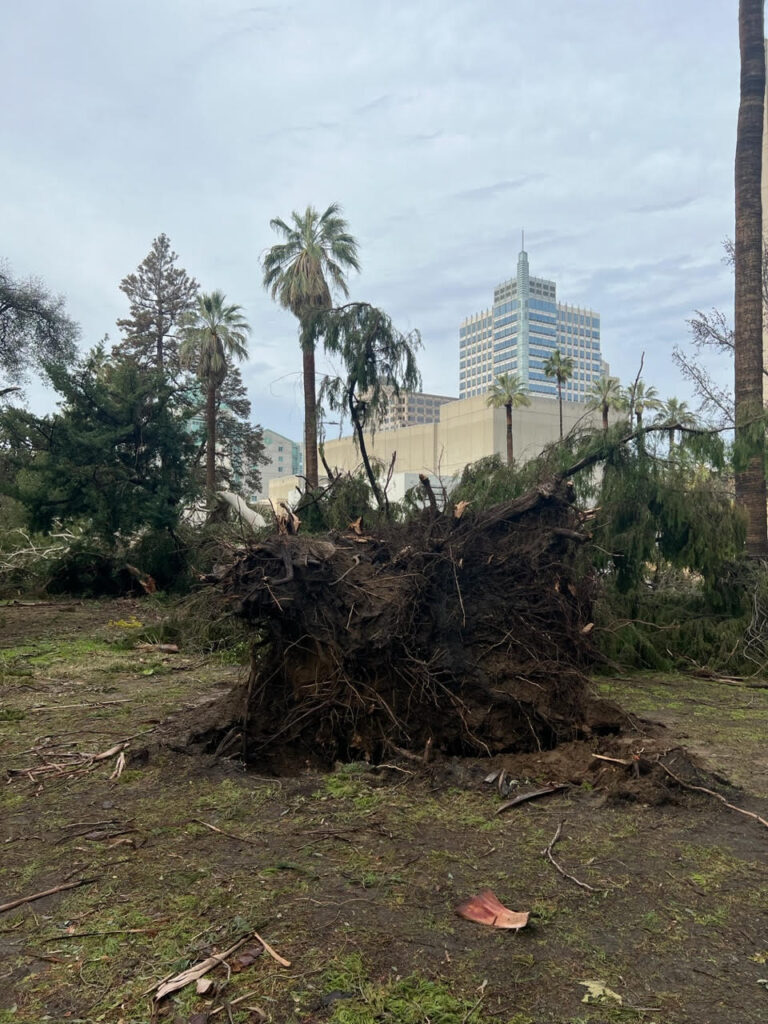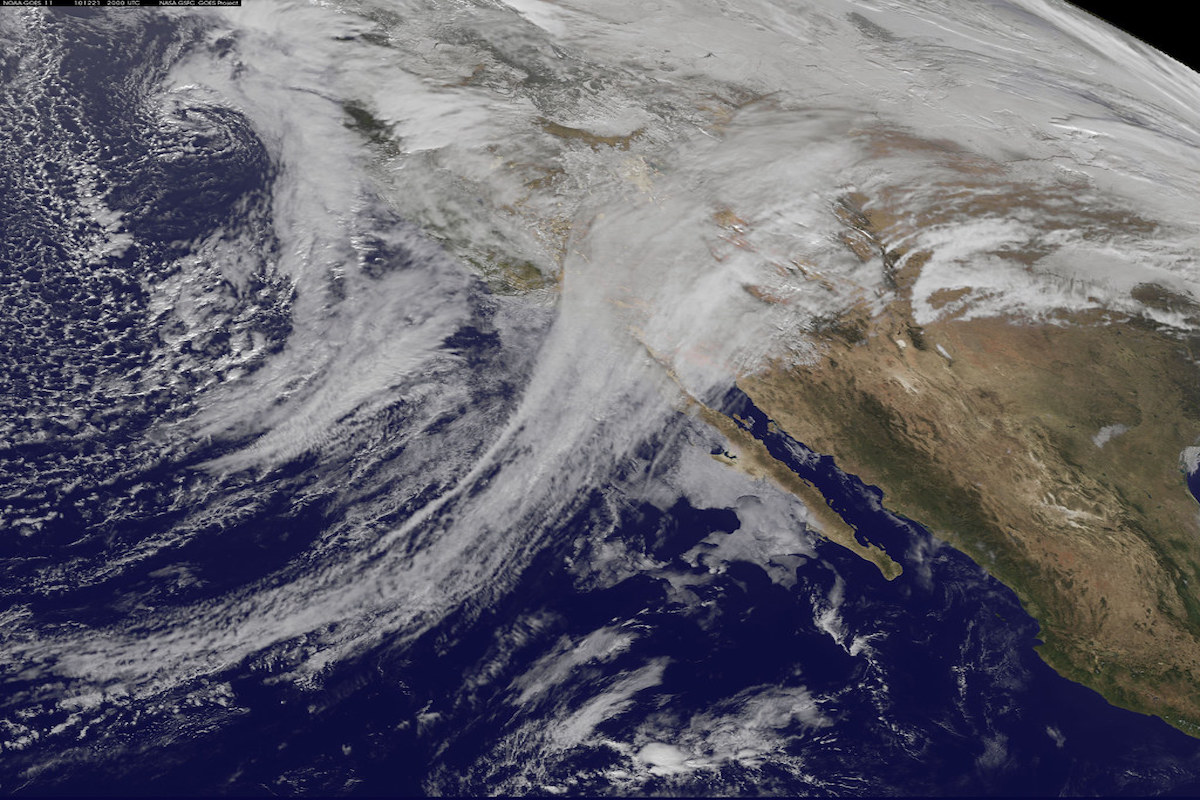By Antonio Ray Harvey | California Black Media
The Governor’s Office of Emergency Services (Cal OES) is asking all residents across the state to prepare for another round of severe weather systems and potential power outages this week.
In a public information campaign driven by Listos California, a program of Cal OES, safety checklists and other resources are being shared with all Californians.
Diana Crofts-Pelayo, Cal OES Assistant Director of Crisis Communication and Public Affairs said during a March 13 briefing that the state is offering “life-saving resources” and providing an update on the states’ “comprehensive effort to protect California communities during these rounds of storms.”
“Gov. Gavin Newsom has activated the State’s Operation Center, which is essentially the full weight of the State,” Crofts-Pelayo said. “The state has to be able to have tightly coordinated responses and rapidly deploy resources to protect impacted communities.”

Cal OES is reporting that so far this year California has experienced multiple large and damaging storms in the form of snow, gusty winds, lightning and torrential rain. It is warning that storms continue to be dynamic and pose a threat to communities throughout the state.
Gov. Gavin Newsom has activated the State Operations Center to bring state support to county-led emergency response efforts and coordinate mutual aid from neighboring jurisdictions.
To elevate the state’s response, Newsom has declared a state of emergency in 40 counties: Amador, Butte, El Dorado, Fresno, Humboldt, Imperial, Inyo, Kern, Lake, Los Angeles, Madera, Mariposa, Mendocino, Merced, Mono, Monterey, Napa, Nevada, Placer, Plumas, Sacramento, San Bernardino, San Francisco, San Luis Obispo, San Mateo, Santa Barbara, Santa Clara, Santa Cruz, Sierra, Sonoma, Stanislaus, Tulare, Tuolumne, Yuba, Calaveras, Del Norte, Glenn, Kings, San Benito and San Joaquin counties have been warned that disaster may occur.
According to Crofts-Pelayo, the impact of the “extreme weather has been significant.” There are 33 shelters opened in 14 counties, about 15,800 people are under evacuation and 6,800 people in 16 counties are without power.
“Our climate is changing and at the end of the day the hots are getting hotter, the wets are wetter, and the dry dryer,” Crofts-Pelayo said. “So, with that we are having to rapidly evolve our response and preparedness messaging to really fit a whole host of different communities. I think that we never really went away from the January storms.”
On March 13, President Joe Biden approved the Governor’s emergency declaration request and has authorized federal assistance to support the storm response effort in California.
Listos California has provided “Preparedness Tips” that the office says will play a critical role in keeping communities safe.
Californians residing in affected counties are encouraged to sign up for their local community’s warning system at CalAlerts.gov. Use Television, radio, and county emergency services social media channels to get the information to be safe, authorities say.
If asked to evacuate, do so immediately and know that personnel at emergency evacuation centers cannot ask for identification. Everyone is welcome at emergency evacuation centers.
Never drive around barricades and never drive into flooded areas. Do not walk, swim, or drive through flood waters.
Visit Listos California for information on the range of resources to help Californians in need.
Above: One of a series of storms known as atmospheric rivers heads towards California, which has been battered by heavy rains and wind causing destruction and loss of life across the state.




